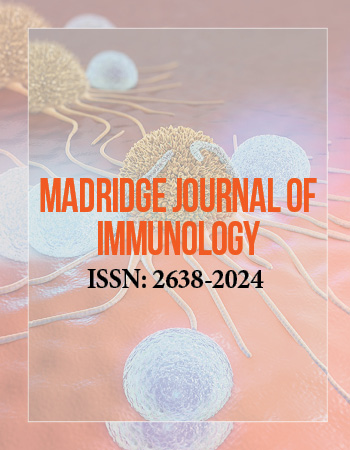International Conference on Immunology and Immunotechnology
November 1-3, 2017 Barcelona, Spain
Targeted Inhibition of Interleukin-10 Accelerates Micro Vascular Rejection in Mouse Model of Orthotropic Airway Transplantation
Comparative Medicine Department and Organ Transplant Centre, King Faisal Specialist Hospital and Research Centre, Saudi Arabia
Introduction: Microvascular injuries due to excessive inflammatory responses has been associated with transplant malfunctions, which play a major role in the development of chronic rejection in all solid organ transplants, and as reported in both clinical and preclinical studies that there are no ongoing immunosuppressive regimens sufficiently affect the restoration of functional microvascular flow during the transplantation. Microvascular reestablishment, and repair during rejection is a promising new avenue to prevent acute and chronic rejection with Tregulatory cell (Treg) mediated immunosuppression but the direct molecular correlations between Treg and microvascular reestablishment has never been examined before. The present study was designed to analyze the molecular mechanisms of Treg-mediated restoration of microvascular flow during the state of immunotolerance and, in particular, the allograft rejection microenvironment.
Methods: We depleted IL-10 in BALB/cJ→C57Bl/6J allografts, and serially monitored peripheral and graft infiltrating Tregs, key proinflammatory and regulatory cytokines, donor-recipient microvascular connections, microvascular leakiness, tissue oxygenation and microvascular blood flow during four week in orthotopic mouse airway transplants.
Results: We demonstrated that depletion of IL-10 in BALB/cJ→C57Bl/6J allografts significantly suppressed CD4+CD25+FOXP3+ Tregs and regulatory IL-10 while upregulated major proinflammatory cytokines, IL-1β, IFN-γ and IL-15, and thereby facilitated donor-recipient microvascular associated injuries followed by a steep drop in tissue oxygenation, microvascular blood flow levels, which proceeds subepithelial injuries at d8, d10 and d28 post transplantation.
Conclusion: Altogether, these findings demonstrate that the targeted blocking of IL-10 severely affected the establishment of microvascular connections between donor-recipients graft, which are regulated through IL-10 and T regulatory cells.
Biography:
Mohammad Afzal Khan earned his PhD in Biotechnology from Aligarh Muslim University, India, and spent eight years as a post-doctoral fellow at Stanford University, USA. His primary research interests are in the field of lung transplant rejection, cell and complement-based Immunotherapies. Lung transplantation is the only effective therapy for many end-staged lung diseases. Unfortunately, lung transplantation has the worst survival of any major organ transplant because the patientʼs own immune system attack the transplanted lung and can cause significant irreversible damage, which leads to chronic rejection. Chronic rejection is the major obstacle to lung transplant success, and there are no effective therapies to avoid this failure. To investigate the clinical benefits of cell and complement-based immunotherapies, he established mouse model of orthotopic airway transplantation and used it together with assessment of microvascular flow after transplantation in MHC mismatched transplants. They use wide array of microsurgical, translational, immunological, confocal imaging, cell and molecular biology techniques to dissect potential benefits of cell based therapies. In global drug discovery program, developing targeted cell-mediated immunotherapies which prevent the transplant rejection without drug induced toxic immunosuppression could, therefore, be of singular importance in the prevention of organ failure following transplantation.


